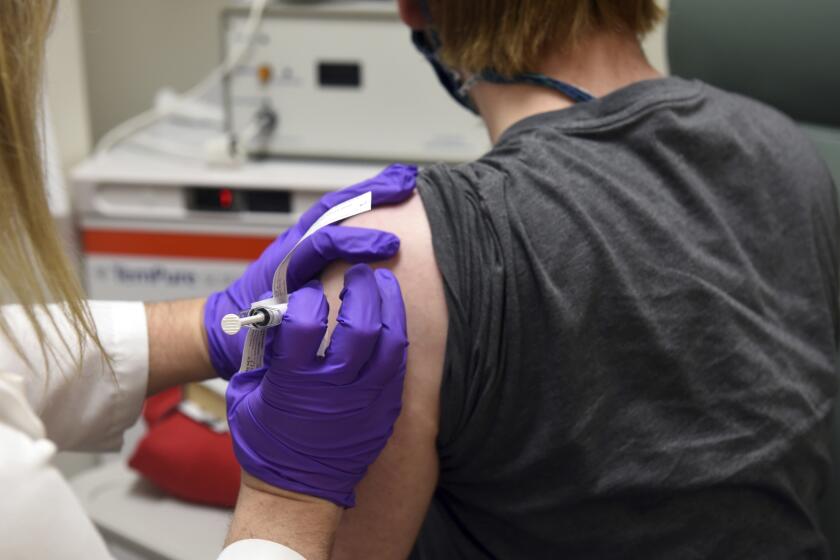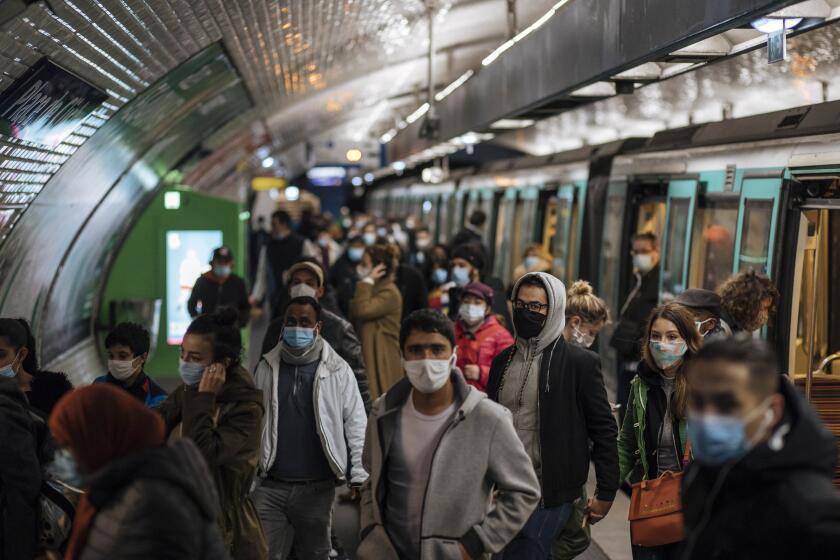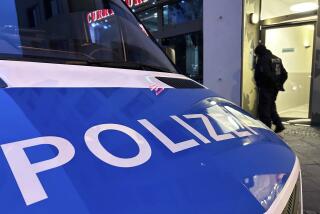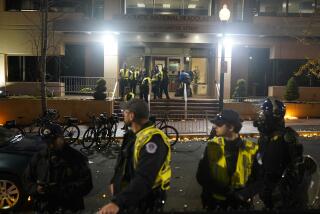Police in Berlin fire water cannons at maskless coronavirus protesters
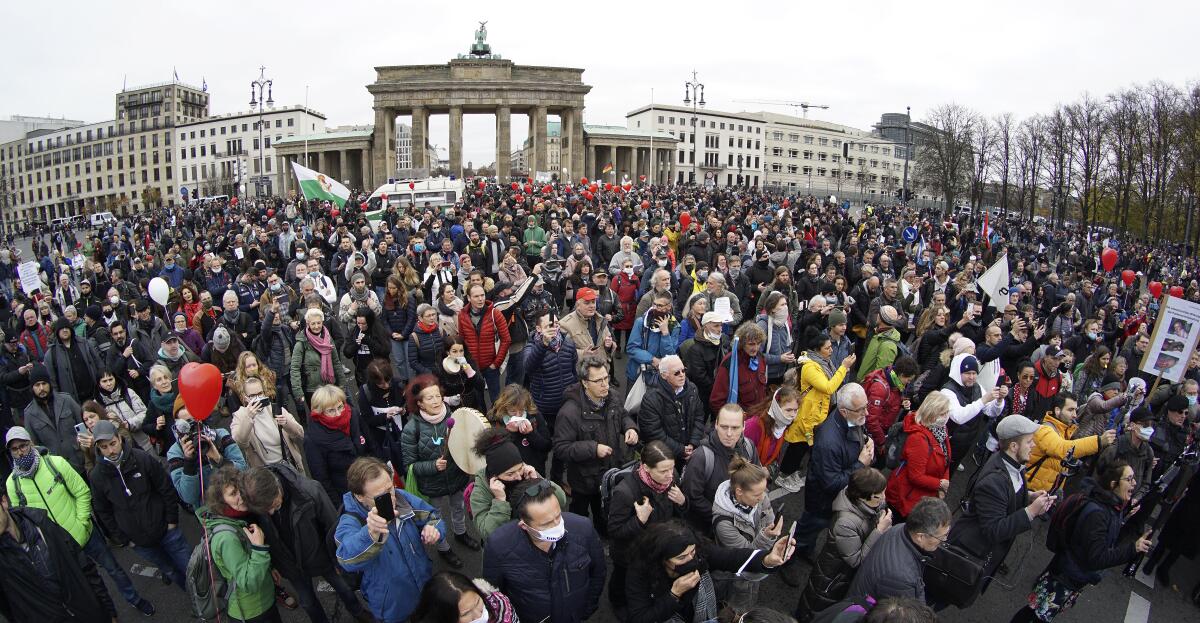
BERLIN — German police fired water cannons and pepper spray Wednesday to disperse people protesting coronavirus restrictions in Berlin’s government district, after crowds ignored calls to wear masks and keep their distance from one another in line with pandemic regulations.
As the cannons soaked protesters outside the landmark Brandenburg Gate, police in riot gear moved through the crowd, carrying away some participants. Some demonstrators threw fireworks and flares in response as police helicopters hovered overhead.
Officers avoided aiming the cannons directly at protesters because there were children in the crowd, and they worked slowly and methodically to disperse the gathering, Berlin police spokesman Thilo Cabiltz said. Some protesters popped open umbrellas and held their ground until they were eventually forced back.
More than 100 people were arrested, Cabiltz said, and many more temporarily detained. Nine police officers were injured. The protest crowd thinned significantly by late afternoon as many demonstrators marched back to the city’s main train station, chanting and blowing whistles.
One protester held a sign saying “Infection Protection Law=Dictatorship.” Another waved one reading “Truth, Freedom, Don’t Touch Our Constitution.”
The protests came as German lawmakers opened debate on a bill that will provide the legal underpinning for the government to issue social distancing rules, require masks in public and close stores and other venues to slow the spread of the coronavirus. Although such measures are supported by most people in Germany, where Chancellor Angela Merkel has warned of hard days ahead because of the virus, a vocal minority has staged regular rallies around the country arguing that the restrictions are unconstitutional.
The measures are expected to pass both houses of Parliament and be quickly signed by Germany’s president.
Authorities had earlier banned a series of protests directly outside the Reichstag building because of security concerns, and fencing was put up around a wide area, including the Bundestag and nearby parliamentary offices, the federal chancellery and the presidential residence and offices.
Outside the metal cordons, protesters gathered early Wednesday by the Brandenburg Gate, which is near the Reichstag, and on streets and bridges. The demonstrators came from all walks of life, ranging from far-left to far-right sympathizers and also including families, students and others.
Pfizer announced more results in its ongoing COVID-19 vaccine study, which suggest that the shots are 95% effective, without serious side effects.
“We want our lives back,” read one sign carried by protesters. Another said: “Put banks under surveillance, not citizens.” One demonstrator held a flag with a picture of President Trump and an image invoking the right-wing conspiracy theory QAnon, while another had a placard showing top German virologist Christian Drosten in prison garb with the word “guilty.”
German Foreign Minister Heiko Maas reacted sharply to the accusation from some protesters that the measures were akin to the 1933 Enabling Act, which allowed the Nazis to enact laws without parliamentary approval.
“Everyone, naturally, has the right to criticize the measures, our democracy thrives through the exchange of different opinions,” he wrote on Twitter. “But whoever relativizes or trivializes the Holocaust has learned nothing from our history.”
A demonstration this month in the eastern city of Leipzig ended in chaos when thousands of protesters defied police orders to wear masks and, later, to disperse. Some participants attacked police officers and journalists.
A French doctor warns that his country has ‘lost control’ of the coronavirus, a day after health authorities reported more than 52,000 new infections.
Local authorities were criticized for acting too slowly and not forcefully enough to break up the crowd in Leipzig, allowing the situation to get out of control.
Berlin police said that they had issued multiple citations already Wednesday for violations of mask-wearing regulations, but that their appeals for people to wear protective gear and to keep their distance from one another were largely being ignored. Police said the order had now been given to detain people disobeying the regulations.
“If that does not help, the only course that remains is to disperse the gathering,” police said on Twitter.
Germany, which has been praised for its handling of the first wave of the coronavirus, has recently seen a sharp uptick in numbers of new infections and is now midway through a second partial lockdown meant to try to slow the spread.
Overall, the country has seen more than 854,500 coronavirus cases and more than confirmed 13,200 coronavirus-related deaths in the pandemic, a death toll one-fourth that of Britain’s.
More to Read
Sign up for Essential California
The most important California stories and recommendations in your inbox every morning.
You may occasionally receive promotional content from the Los Angeles Times.
